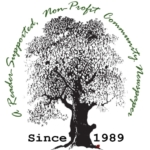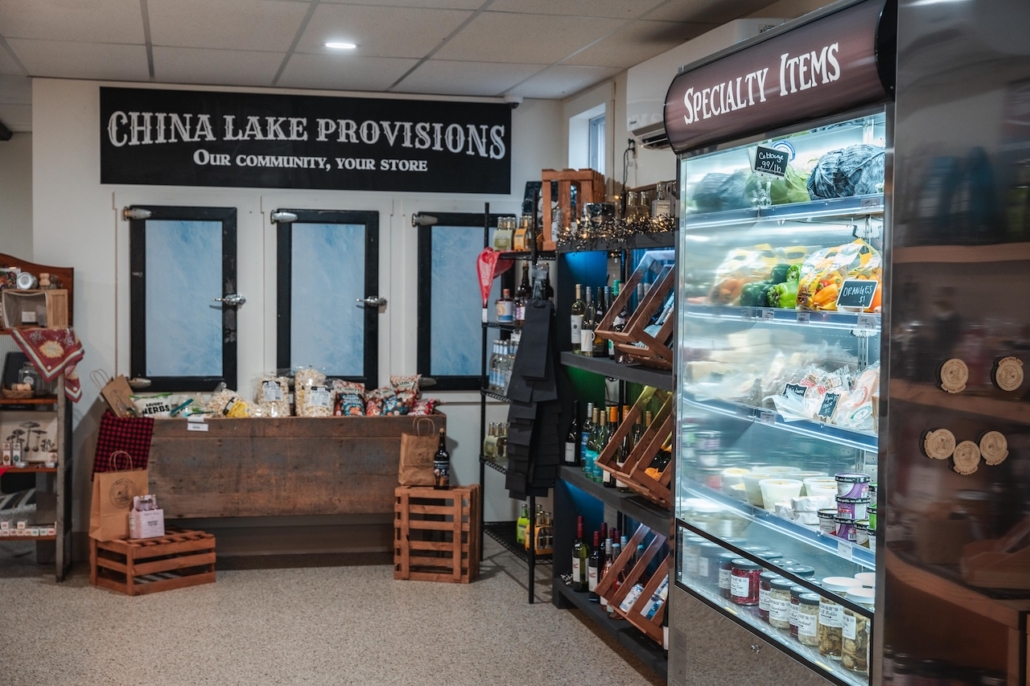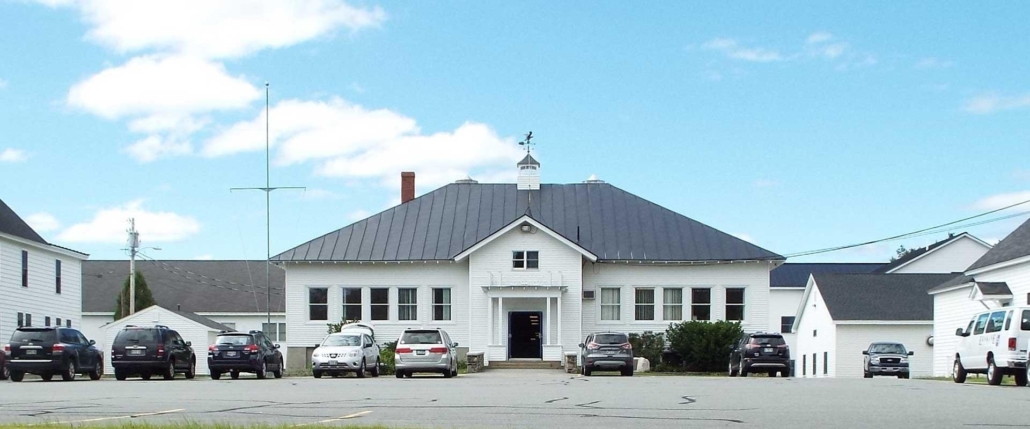China planners debate cluster or subdivision development
 by Mary Grow
by Mary Grow
China Planning Board members spent most of their March 25 meeting arguing over whether to propose allowing cluster developments in town. Chapter Three of the current Land Development Code prohibits them.
One point of contention was whether “cluster development” is the proper name. A recognized alternative is “open space subdivision.”
In a conventional residential subdivision, available land is divided into lots that meet minimum lot size requirements (40,000 square feet in China) and a house is built on each lot. Subdivisions often have wooded buffers between houses and interior roads.
In an open space subdivision, one section of the land is divided into smaller house lots – board members and codes officer Nicholas French talked about 20,000 square feet as a minimum. The rest, perhaps more than half the total area, remains common space, which could be used for communal purposes like recreation, gardening or a playground.
Whether people who do not live in the subdivision could access the open space would depend on ordinance provisions, or on the rules of the association that homeowners established, board members said.
Whether there was a homewners’ association would depend mostly on who sold and who bought the lots. The developer might continue to manage the common area, including any shared roads, board member Dwaine Drummond suggested.
French is a proponent of open space developments. He said they would provide needed housing with less damage to China’s natural environment and rural character; minimize sprawl – avoiding “House, house, house, house,” he said, tapping the table to indicate a row of houses lining a road; minimize expensive road-building; and provide a more affordable alternative than a conventional subdivision.
And smaller lawns for homeowners to mow, board chairman Toni Wall added.
French and Wall think most China residents appreciate the town’s rural character and do not want sprawl. Adding open space development as an alternative would give planning board members another option that they think would support majority preferences.
Wall and board members Drummond and Milton Dudley mostly cited points in favor of open space development. Natale Tripodi and Elaine Mather had objections.
The first question they raised was whether apartment buildings would be included. The preliminary answer is only if the town ordinance says so, and it needn’t. French reminded board members of the new state law allowing a second residence on what used to be considered a single-building lot.
“Why do we need to solve the state’s housing crisis?” Mather asked.
French offered, “So town employees can afford houses” in or near town, citing statistics about area average incomes and housing costs.
Mather further asked for a definition of “open space” – in the ordinance amendment if the board writes one, Dudley replied – and whether adding the new option would mean the board denied future subdivision applications – no, Wall said.
Mather assumed the 1993 decision to ban cluster subdivisions was based on research. French suggested it was instead “a knee-jerk reaction to the name,” but admitted he couldn’t prove it. He and board members doubted 1993 records would answer the question.
Audience member Robert Bernheim proposed hypothetical scenarios about people sharing an open space development. Wall repeated that the answers would depend on ordinance provisions and their implementation.
The hour-long discussion ended with Wall planning to share copies of open space subdivision provisions in other Maine towns’ ordinances, in preparation for continued consideration at the next board meeting.
Also on the board’s future agendas are continued review of the entire subdivision ordinance, and development of a new ordinance to regulate high impact electric transmission lines through town before the moratorium voters approved last fall expires.
The Nov. 5, 2024, vote imposed a 180-day moratorium on such transmission lines, with the select board authorized to add one 180-day extension.
The March 25 meeting began with a five-minute public hearing on proposed amendments to Chapters 2 and 11 of China’s Land Development Code. Wall explained that the purpose of the amendments, which will be submitted to town voters in June, is to finish deleting references to timber harvesting. Regulating timber harvesting has been transferred from the town to the state Bureau of Forestry.
There were no comments from the public or board members on the proposed changes. They are available for review on the town website, chinamaine.org, under Officials, Boards & Committees; under that heading, under Planning Board; and under that subheading, “proposed edits” for the two chapters.
The next scheduled China Planning Board meeting is at 6:30 p.m., Tuesday, April 8. After the March 25 meeting, Town Manager Rebecca Hapgood reported the board had agreed to skip a scheduled April 22 meeting, so that the China select board can meet that evening (the regular select board meeting would be Monday, April 21, the Patriots’ Day holiday).
Responsible journalism is hard work!
It is also expensive!
If you enjoy reading The Town Line and the good news we bring you each week, would you consider a donation to help us continue the work we’re doing?
The Town Line is a 501(c)(3) nonprofit private foundation, and all donations are tax deductible under the Internal Revenue Service code.
To help, please visit our online donation page or mail a check payable to The Town Line, PO Box 89, South China, ME 04358. Your contribution is appreciated!





Leave a Reply
Want to join the discussion?Feel free to contribute!